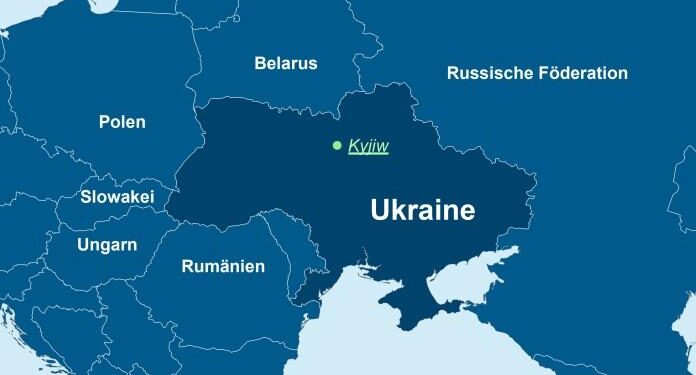Ukraine has confirmed that Russian forces have entered a strategic area within the Dnipropetrovsk region, marking a significant escalation in the ongoing conflict. The acknowledgment, reported by the BBC, underscores the intensifying military operations as Kyiv grapples with incursions into its eastern territories. This development raises concerns over the stability of the region and the broader implications for the conflict’s trajectory.
Russia Advances into Strategic Dnipropetrovsk Region Escalating Eastern Ukraine Conflict
Russian forces have reportedly breached the defenses in the Dnipropetrovsk region, marking a significant escalation in the ongoing conflict in eastern Ukraine. Ukrainian officials, acknowledging the incursion, emphasize the strategic importance of this area as a key logistical and industrial hub. The move threatens to destabilize Ukrainian control along vital supply routes and has prompted urgent international calls for de-escalation.
The unfolding situation has heightened concerns over civilian safety and infrastructure damage, with local authorities mobilizing emergency services and reinforcement units. Key factors influencing the conflict dynamics include:
- Proximity to major cities such as Dnipro, critical for military and economic activities.
- Control of transport corridors essential for reinforcements and aid delivery.
- The region’s industrial capacity, which is pivotal for sustaining Ukraine’s defense efforts.
| Aspect | Ukrainian Position | Russian Advances |
|---|---|---|
| Territorial Control | Maintains key northern districts | Gaining footholds in southern zones |
| Military Presence | Reinforced local brigades | Increased troop deployments and armored units |
| Infrastructure Status | Critical facilities operational | Targeting transport and supply lines |
Implications for Ukrainian Defense and Regional Stability Amid Renewed Hostilities
The incursion of Russian forces into the strategic Dnipropetrovsk region marks a significant escalation with far-reaching consequences for Ukraine’s military posture. This development pressures Kyiv to recalibrate its defense strategies, prioritizing the protection of critical infrastructure and supply lines within the industrial heartland. Ukrainian forces are expected to increase troop deployments and strengthen defensive perimeters, aiming to slow or halt further advances. The challenge lies in balancing resource allocation while maintaining operational readiness across multiple fronts, highlighting the strain on Ukraine’s armed forces amid prolonged conflict.
Beyond immediate military concerns, the breach introduces heightened instability across Eastern Europe, raising alarms among neighboring countries and international stakeholders. Key implications include:
- Heightened risk of spillover violence into adjacent regions, complicating diplomatic efforts.
- Disrupted economic activities due to uncertainties impacting industry and trade corridors.
- Increased calls for international support to bolster Ukraine’s defense capabilities and humanitarian response.
These factors collectively underscore how renewed hostilities in Dnipropetrovsk could destabilize the broader regional security framework, potentially triggering realignments in geopolitical alliances and defense cooperation.
| Aspect | Potential Impact |
|---|---|
| Military Reinforcement | Increased troop presence and fortifications |
| Economic Stability | Logistical disruptions and industrial slowdowns |
| International Response | Heightened military aid and diplomatic pressure |
| Regional Security | Elevated tensions among neighboring states |
Urgent Recommendations for International Support and Diplomatic Intervention
With Russia’s confirmed advance into the strategic region of Dnipropetrovsk, the international community faces an urgent crossroads. The situation demands swift and coordinated diplomatic pressure to prevent further escalation and support Ukraine’s sovereignty. It is imperative that global powers intensify sanctions, enhance military aid, and reinforce diplomatic channels to deter further incursions. Failure to act decisively could destabilize the entire Eastern European geopolitical landscape, exacerbating humanitarian crises and undermining global security frameworks.
Key immediate actions recommended include:
- Imposition of comprehensive sanctions targeting critical sectors of the aggressor’s economy
- Deployment of increased humanitarian assistance to affected civilian populations
- Facilitation of high-level diplomatic negotiations mediated by neutral parties
- Acceleration of military support to Ukrainian defense units with advanced surveillance and defensive equipment
| Action | Purpose | Urgency | |
|---|---|---|---|
| Sanctions Expansion | Weaken economic capabilities | Immediate | |
| Humanitarian Aid | Protect civilians | High | |
| Diplomatic Mediation | Diplomatic Mediation | Facilitate dialogue to resolve conflict | Urgent |
| Military Support | Strengthen defenses and surveillance | Immediate |
















